Your login information returned multiple users. Please select the user you would like to log in as and re-type in your password.
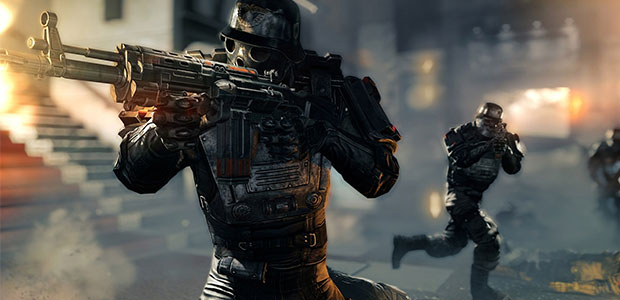

I completed Wolfenstein: The New Order just a few days ago. Yes, I’m a little behind.
As I set the controller down and watched the credits roll, the internal conflict that lies at the core of the game’s design and narrative had already set in: what is this game, and what is it trying to be? By the time the credits came to an end and the inevitable hint of a sequel hook dropped (this is a video game released in 2014, after all), I wasn’t so certain I was thrilled with Wolfenstein’s answer.
This is a game which will switch from surprisingly brutal violence to soul-searching internal monologue in the blink of an eye. This goes okay, even quite well, with certain pieces: the melodramatic hero is not an uncommon archetype, and a comparison from my brother that “The New Order is at times like Max Payne meets Nazis” touched upon one of my favorite franchises in a surprisingly accurate way.
And it’s not as if violence is anathema to the Wolfenstein experience, either: Wolfenstein 3D was the most “adult” video game of its time, a dubious title awarded quite easily thanks to the fact that its closest competition was Custer’s Last Stand.
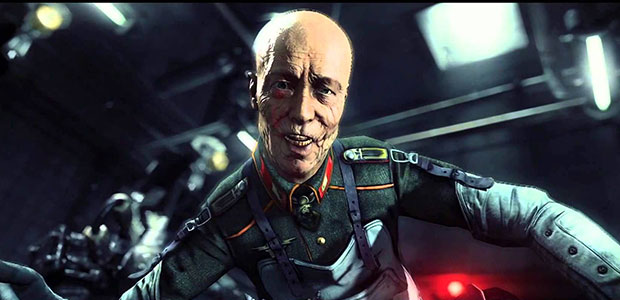
Indeed, a toned-down Wolfenstein would have been no Wolfenstein at all. Brutality is the name of the game, both to enrage the viewer and spark their bloodlust just as much as it is intended to sate that bloodlust. If the Nazis’ crimes are sanitized, our hulking hero’s brutal knife takedowns suddenly become disturbing instead of disturbingly satisfying. So I won’t tear down the decision to make the game so gosh darn violent, then - though I’d say at least one cinematic towards the very end of the game pushed things a bit far and burned a horrifying image into my memory - but I will instead question how effective their decision was to make all of it so freaking dramatic.
B.J. Blazkowicz has always been the very definition of the strong, silent type, and I’m open to the idea that there’s been more going on behind those shifty eyes and furrowed brow. I’ll just about never go after a series for attempting to flesh out existing characters and add dimension to a longstanding franchise; this is a far better way of keeping something fresh and relevant than the usual new coat of paint.
The question is, does it work? Was it implemented well here?
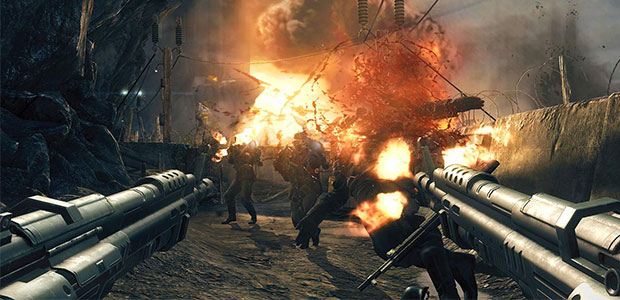
As the credits rolled, I was uncertain. To return to the Max Payne comparison: the most common critique of Max Payne 3 was that Max’s internal struggle couldn’t be reconciled with the mass-murdering gunman who starred in gameplay. In the case of Wolfenstein, I feel the same way.
B.J. muses about the woman he loves and the life which he dreams they’ll have; cut to blowing four Nazis to gibs with a laser.
B.J., eyes filled with regret, faces the passing of a friend; cut to firing rockets at a giant robot.
At least in Max Payne the violence wasn’t based around giant robot dogs and laser cannons. The grit running underneath the script still largely matched that of the gameplay. But here, Cinematic B.J. is a war poet; Gameplay B.J. is Serious Sam.
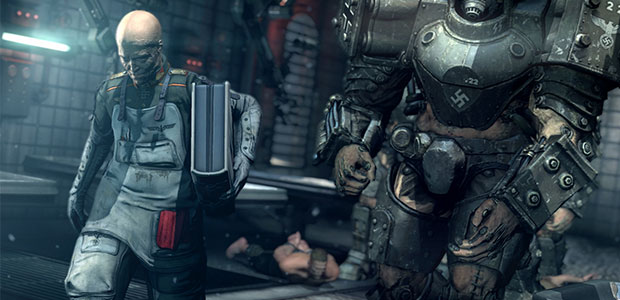
I love the expansion of plot, the larger-than-life characters, the gravitas for a franchise which lacked it. But with such uncomfortable juxtapositions at every turn, and such shifts in tone every time gameplay and cutscene cut between each other, reconciling what the game attempted to do with how the game felt to play is a challenge.
But who knows? Maybe the problem is me - maybe I didn’t know what to expect going in, and had a hard time piecing together what I was supposed to expect.
At the very least, I hope that next time they can skip the brain thing. I mean, come on. Eww.
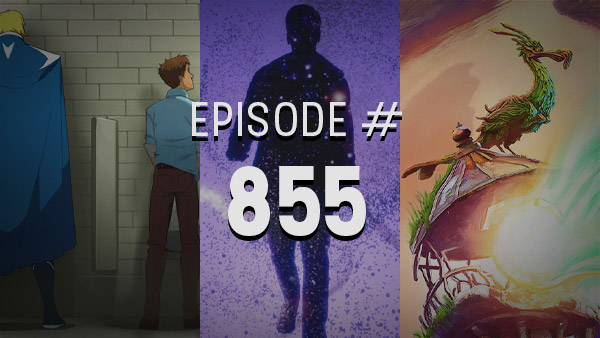
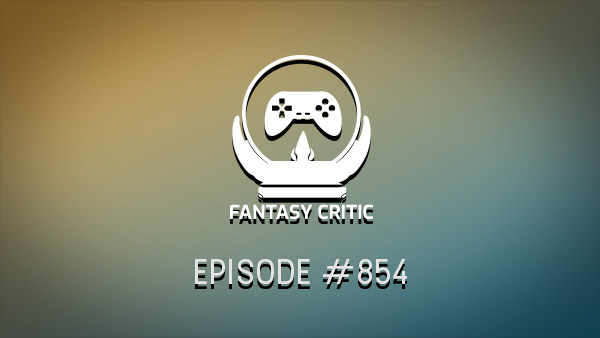
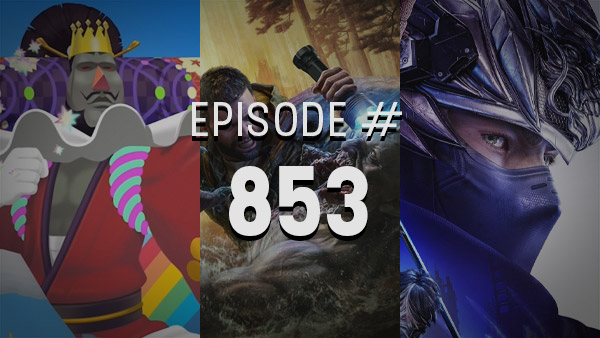
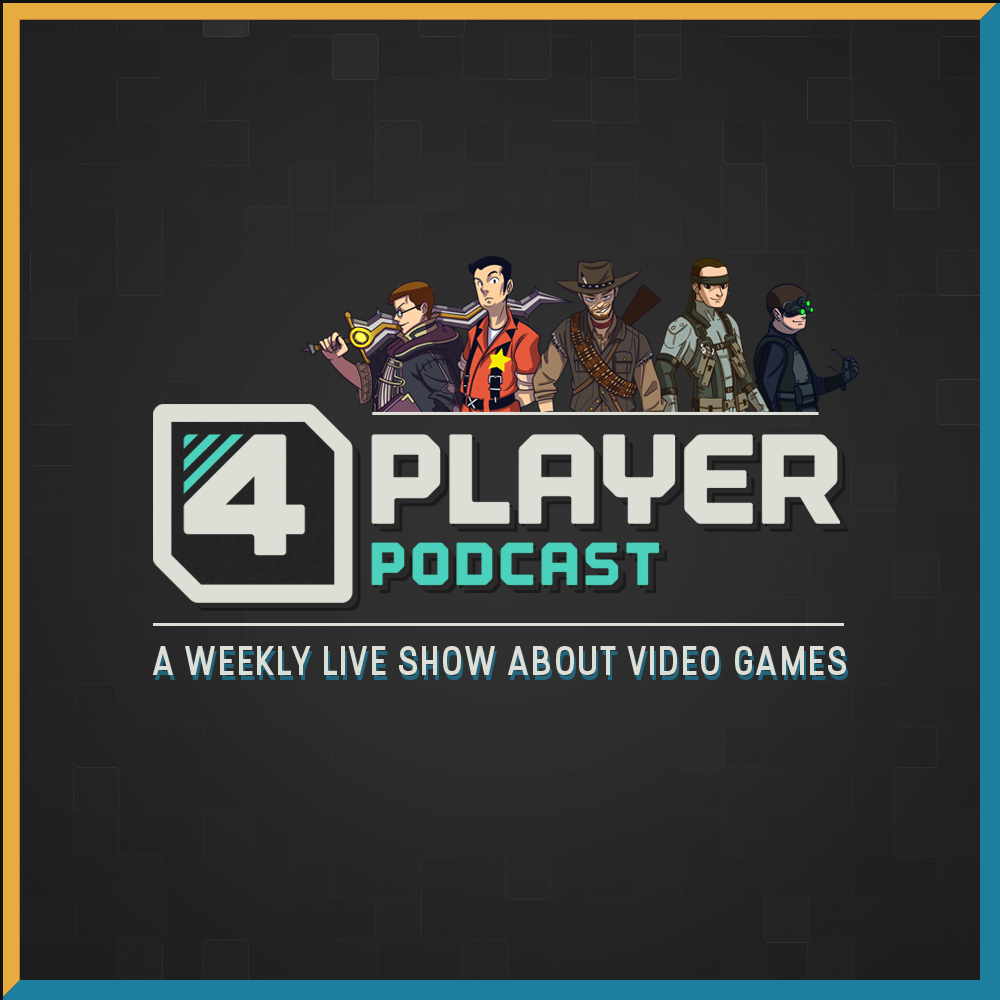
Comments
11 years, 5 months ago
Question to anyone who has completed the game besides Zack is the game worth it solely based on the gameplay? I'm not really that fussy if the story jumps the shark.
11 years, 5 months ago
I dunno whether I really felt that disconnect between Cutscene BJ and Gameplay BJ. It's made obvious in the first few cutscenes that BJ really, really fuckin' hates Nazis and the war-weary internal monologue is just the one part of his brain that still somehow isn't a nazi killing machine. Its worth emphasizing HE ONLY KILLS NAZIS. It's not like GTAIV where Cutscene Niko was lamenting about All the Shit He's Seen and how he just wants "a fresh start in Ameerika" and two seconds later Gameplay Niko is blowing up an internet cafe with an RPG. That's a REAL disconnect right there. If you only killed, say, Russian mobsters as Gameplay Niko it'd be closer to Cutscene Niko's character, which is similar to what's going on in Wolfenstein.
One last thought.....people have been comparing this game to HL2 here and there so here's my comparison: I guess if you're willing to accept Gordon Freeman as a completely silent protagonist who basically never interacts with anybody else in the game in any kind of near-human fashion, yet you can still find the relationships with Alyx and the other characters powerful and engaging, you can accept the disconnect between thoughtful BJ and hyperviolent BJ in a game like Wolfenstein. At least it's nowhere near as jarring as in GTAIV.